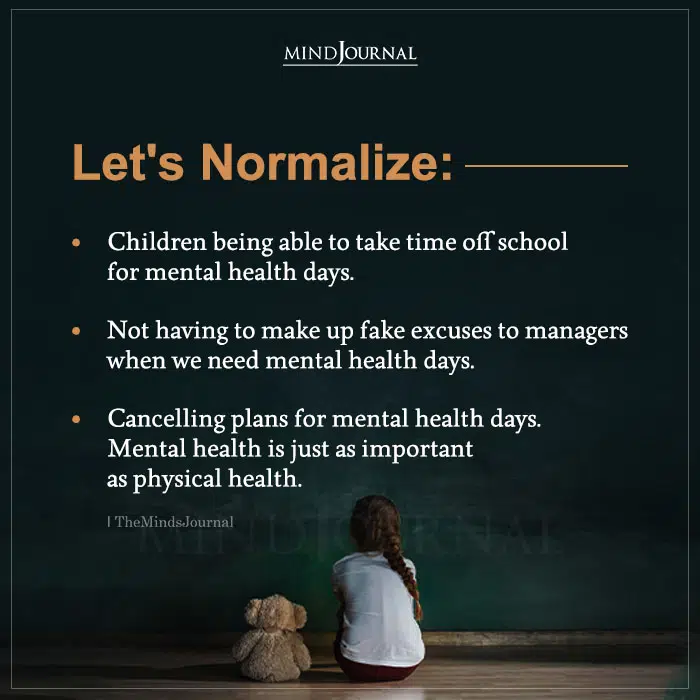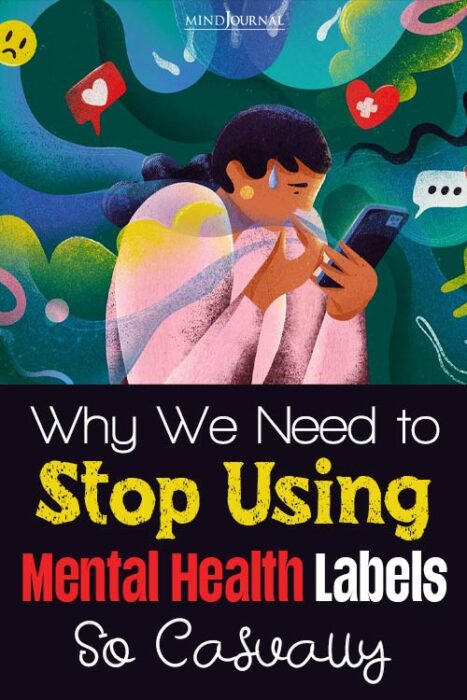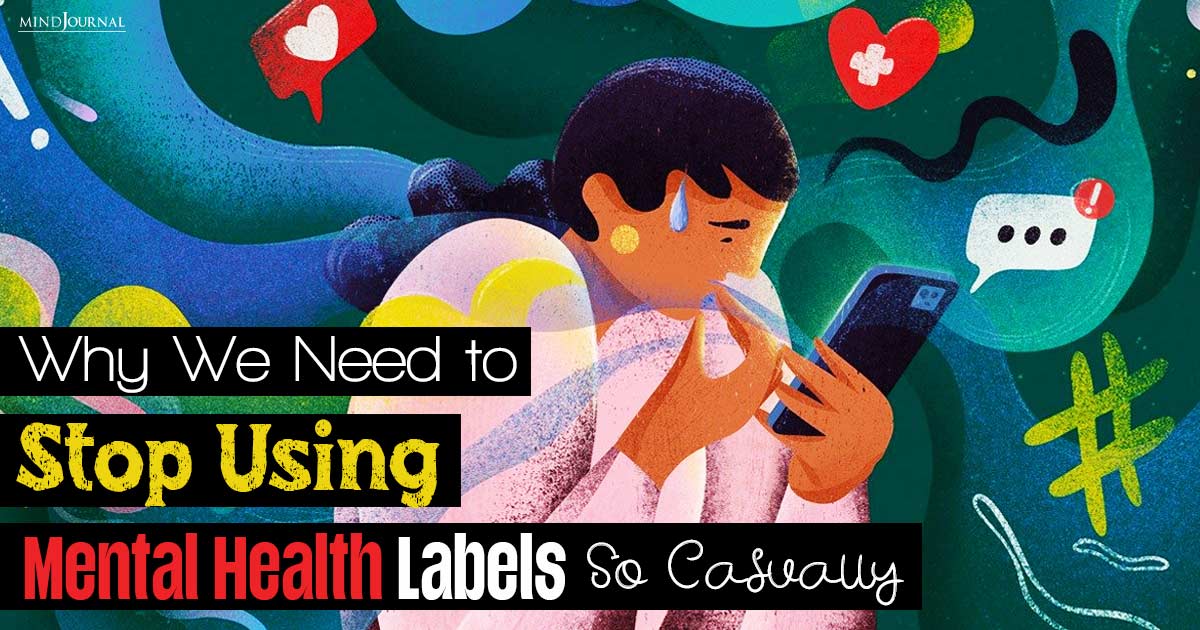Using mental health labels casually can lead to a lot of misinformation out there, and can also lead to stigmatizing mental illness. The misuse of mental health labels has increased at a concerning rate, and it’s important to be more aware of it before it complicates things further.
Key Points:
- People often co-opt mental health terminology to describe everyday behavior.
- These terms are used loosely, although the mental health community is specific about how they define these conditions.
- This can trivialize complex conditions and perpetuate harmful and misleading stereotypes and myths.
Using Mental Health Labels Casually
People often borrow terminology from the language of mental health to describe everyday behavior. A neat and tidy person declares “I’m so OCD!” (as in obsessive-compulsive disorder). Someone who is worried or self-conscious is called “paranoid.” A person who changes their mind a lot is branded “schizophrenic.”
The general public often uses these terms loosely, although the mental health community is specific about how they define these conditions.
This kind of language is common, and while no harm is usually meant, it can be considered to be ableist.
Ableism is prejudice against people because of their different physical, intellectual, or psychological status. Ableist language includes words and phrases that are intentionally or inadvertently derogatory toward a person with a disability, disease, or mental illness. It is considered to be a form of language that excludes people with disabilities and casts them as inferior, irrelevant, or invisible.
Related: 5 Mental Health Disorders And Their Significant Portrayals In Pop Culture
Outdated Medical Terms
Many words that are considered ableist today were once diagnostic terms, like lunatic. Lunatic originally referred to a condition believed to be caused by the changing phases of the moon, one that was named after the Roman goddess of the moon, Luna.
From the late 13th century, lunatic was widely accepted as a term referring to people with mental illness and the place where they resided, the lunatic asylum.
A demonology theory prevailed as late as the 19th century, in which demonic possession, witchcraft, or punishment from God was blamed for mental illness. By this time, lunatic had acquired negative connotations.
Beliefs about the cause of mental illness had advanced from astrological and demonological theories, so lunatic was supplanted by insane, while lunatic asylums were renamed insane asylums.
Insane was derived from the Latin “insanus” which meant mentally unsound because people with mental illness were thought to have lost their sense of reason.
By the 1950s, a more scientific approach was taken toward mental health, and insane became offensive too. Psychiatric terminology was reformed to reshape the negative image of the profession and to promote the idea that people with mental illness were sick, although able to be treated and cured.
Patients and mental illness came into usage, while lunatic and insane lost their diagnostic status. These words do not appear in the modern official guide, the Diagnostic and Statistical Manual of Mental Disorders.
They are no longer part of the clinical vocabulary; however, they still remain in everyday language in phrases like “He’s a lunatic!” and “That’s insane!”
They are commonly used as insults in political rhetoric, such as the loony left. The vocabulary of mental illness is often relied upon to label what is perceived as irrational, ignorant, incompetent, or lacking reason and sense.
The use of recently outdated or obsolete medical terms can also be considered offensive because they are associated with stereotypes about the conditions.
For example, manic and mania refer to obsession and frenzy and have become associated with phrases such as Manic Monday and homicidal maniac, so what was previously called manic depression is now bipolar disorder.
Multiple personality disorder was stigmatized through the book and TV mini-series “Sybil” and other fictional portrayals of the condition as a kind of demonic possession, so it was renamed dissociative identity disorder.
Perceptions of other conditions have evolved over time to become more sympathetic. Before it became known by its modern name post-traumatic stress disorder (or PTSD) in the 1970s, the condition was referred to in turn as exhaustion, soldiers’ heart, shell shock, combat fatigue, war neurosis, and battle fatigue.
These are moralistic terms that blamed traumatized soldiers for their own suffering and for being “too emotional.”

Mental Health Metaphor
Not only are outdated clinical diagnoses used as insults, but modern ones are too. Mental health metaphor is a common form of hyperbole used to talk about behavior.
Like calling someone “OCD” just because they are organized and tidy, mood swings are described as bipolar, an egotistical politician is a narcissist, a person who cannot pay attention or concentrate is ADHD (attention-deficit/hyperactivity disorder), and the hated ex-girlfriend is a psycho “b*tch.”
These clinical terms, as well as psychotic, paranoid, depressed, and hypochondriac, are used conversationally to describe undesirable traits or character flaws or to speculate about the mental health of public figures.
Pop psychology labels are also used as terms of abuse. Sociopath and psychopath are not true clinical terms but are used colloquially to refer to someone considered to be dangerous and lacking in shame, empathy, or remorse. (Antisocial personality disorder is the actual clinical term for the disorder which is characterized by a disregard for other people.)
There are many other mental health or disability-related terms that are used as insults, like crazy, mad, idiot, and moron, which can be considered to be offensive because of their historical baggage.
Many people use this kind of language without consideration because they are desensitized to its past and present implications.
Related: What is Pseudo Psychology? 5 Harmful Pseudo Psychology Beliefs That Lurk Among Us
Although widely accepted in society, psychiatric name-calling is often offensive to people who have been diagnosed with mental illness, because terms used to describe their medical conditions are instead being used to describe bad behavior.
This colloquial usage of mental health terminology is perceived to trivialize conditions that are complex and debilitating and to perpetuate harmful and misleading stereotypes and myths.
This is part of the process of creating a stigma around mental illness while stigmatizing language drives people away from seeking help for these conditions.
Want to know more about the misuse of mental health labels and why we should stop using mental health labels casually? Check this video out below!
Written By Karen Stollznow Ph.D. Originally Appeared On Psychology Today









Leave a Reply
You must be logged in to post a comment.